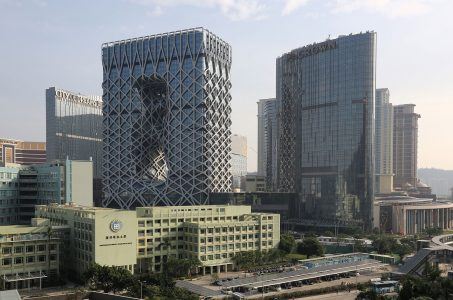PAGCOR Refuses to Shut Down Casino Filipino Manila Bay, Rejects Audit Claims
Posted on: July 24, 2019, 04:02h.
Last updated on: July 24, 2019, 04:04h.
The Philippine Amusement and Gaming Corporation (PAGCOR) Monday — dismissed a national auditor’s recommendation — that its Casino Filipino Manila Bay consider closing after it was alleged the property had five successive years of net losses totaling about $41.3 million (PHP 2.113 billion).

PAGCOR further disagreed with multiple assumptions made in the recently released Commission on Audit (COA) 2018 financial report about the venue.
CF Manila Bay only commenced operations in August 2017, less than two years to date,” according to a PAGCOR statement. “The … (PHP) 2.11 billion worth of losses …, which dated back to 2014, was not accurate as it included the revenue deficits of CF Pavilion, which ceased operations last March 2018.”
To improve the situation, PAGCOR said in the statement it is reducing the Manila Bay casino’s operating expenses. Additionally, PAGCOR is giving priority to marketing more promising venue operations “on the branch’s potential niche, the high limit and VIP table games.”
To generate additional revenue, Casino Filipino Manila Bay is also pursuing “the sublease of its second-floor area to junket operators. Furthermore, an income sharing scheme is being seriously contemplated for a guaranteed positive bottom line.”
Casino Filipino Manila Bay also has been operating “on a profit level after deducting the franchise taxes and the operating expenses…. CF Manila Bay’s gross gaming revenue has in fact been steadily increasing since it opened 23 months ago,” the statement said.
“We deem it necessary for COA to consider CF Manila Bay’s steady contributions to PAGCOR’s mandated beneficiaries — as part of the branch’s profits and contributions to nation building — and not as losses,” the statement adds.
Also, PAGCOR says Casino Filipino Manila Bay operations must continue because of a previous contract with Vanderwood Management Corporation. The agreement cannot be invalidated.
Competition from Other Gaming Venues
Both PAGCOR and COA blame current finances mainly on competition from other casinos. “The local gaming landscape is becoming increasingly competitive due to the opening of integrated resorts in Metro Manila, among other factors,” the PAGCOR statement said.
But, COA warned “aggregate net losses, … incurred by CF-Manila Bay, cast doubt on its ability to continue as a going concern and the … condition was not disclosed in the Notes to Financial Statement as required.” The release of such information is mandated under Paragraph 25 of the Philippine Accounting Standards (PAS), according to Inquirer.net.
The auditor’s report said the casino’s gross earnings totaled about PHP 10.6 billion ($207 million) over the past five years. Expenses reached PHP 6.5 billion ($127 million), and taxes for the franchise were PHP 527 million ($10.3 million).
Also, the casino paid PHP 5.26 billion ($102.8 million) to the national government. Other payments were made to city of Manila.
Gross PAGCOR Revenue Jumps 11 Percent
Looking at the big picture, PAGCOR says its national gross revenue has jumped more than 11 percent in the first four months of this year, with income totaling PHP 25.09 billion ($482.5 million). The $482.5 million performance is an 11.44 percent premium on the same period in 2018, and PAGCOR shares most of its earnings with the government, with its tax share totaling $352.9 million.
Philippines President Rodrigo Duterte has admitted he can no longer “control” gambling in the Southeast Asian nation. For now, he will let individuals decide for themselves about taking part in popular forms of gaming.
Filipino casinos — both PAGCOR properties and the commercial integrated resorts — reported gross gaming revenue (GGR) of PHP 187.54 billion (US$3.58 billion) in 2018. The private sector multibillion-dollar resorts, which include Resorts World, Solaire, City of Dreams, and Okada, were responsible for more than $2.9 billion.
GGR this year is predicted to total $4.1 billion, an 8.5 percent jump from 2018. PAGCOR is both a casino regulator and operator, and as of earlier this year, owned and managed eight main casinos under its Casino Filipino brand. The agency additionally operated 34 smaller satellite gaming facilities.
Related News Articles
Most Popular
Mirage Las Vegas Demolition to Start Next Week, Atrium a Goner
Where All the Mirage Relics Will Go
Most Commented
-
Bally’s Facing Five Months of Daily Demolition for Chicago Casino
— June 18, 2024 — 12 Comments -
Chicago Pension Mess Highlights Need for Bally’s Casino
— July 2, 2024 — 5 Comments
















No comments yet